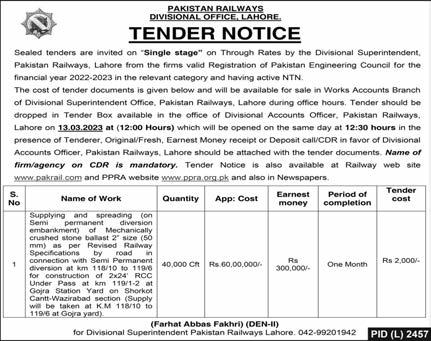
4 minute read
Climate Change and its effects worldwide
News Desk
Climate change is the long-term alteration of temperature and weather patterns in the world. It is caused by the increasing levels of greenhouse gases in the atmosphere, primarily carbon dioxide, which trap heat and warm the planet. The effects of climate change are widespread and potentially catastrophic, affecting everything from the environment to human health and the economy. One of the most visible effects of climate change is the rise in global temperatures. This warming has led to a number of consequences, including melting ice caps and glaciers, rising sea levels, and more frequent and severe heat waves. As sea levels rise, low-lying areas are at risk of flooding, and coastal communities may be forced to move inland.
Advertisement
Climate change also has a profound effect on the environment. As temperatures rise, many plant and animal species are forced to adapt to new conditions or risk extinction. Changes in precipitation patterns can also disrupt ecosystems, leading to declines in biodiversity.
The consequences of climate change are not limited to the natural world; they also affect human health. Heat waves can lead to heat stroke and other heat-related illnesses, and air pollution from burning fossil fuels can exacerbate respiratory problems. The spread of disease is also a concern, as warmer temperatures and changing precipitation patterns can create the ideal conditions for certain pathogens to thrive.
Climate change also has the potential to cause significant economic damage. As temperatures rise and weather patterns change, crop yields may decline, and natural disasters such as floods and hurricanes may become more frequent and severe. This can lead to food shortages, higher food prices, and even famine.
The good news is that it is not too late to take action to slow the effects of climate change. By reducing our dependence on fossil fuels and increasing the use of renewable energy sources, we can slow the rate of greenhouse gas emissions and mitigate the effects of climate change. Planting trees and preserv-
instead of curbing smuggling, customs officials seem more focused on individual actions: sc
IsLAMABAD Staff RepoRt ing natural habitats, along with reducing deforestation and land use changes, can also help to remove carbon dioxide from the atmosphere.
In conclusion, climate change is a global problem that affects the whole world. It is caused by the increasing levels of greenhouse gases in the atmosphere and has a wide range of effects, including rising temperatures, rising sea levels, changes in weather patterns, declines in biodiversity, and impacts on human health and the economy. We must take immediate action to reduce greenhouse gas emissions and slow the effects of climate change before it’s too late.
By Waleed Qasim Bashir
Plea against naB law amends
CJP says rule of law, access to justice also fundamental rights
IsLAMABAD Staff RepoRt

Chief Justice Umar Ata Bandial on Wednesday observed that the rule of law and access to justice are also fundamental rights, saying that in two or three recent judgments, the Supreme Court maintained petitions under Article 184(3) on violations of other provisions of the constitution.
Chief Justice Umar Ata Bandial made the observation while heading a threejudge bench of Supreme Court, comprising Justice Ijazul Ahsan and Justice Syed Mansoor Ali Shah, hearing a petition filed by former prime minister Imran Khan against amendments National Accountability Ordinance, 1999.
On Wednesday, Makhdoom Ali
Khan, the counsel for the federation continued argument and adopted the stance before the Supreme Court that no fact has been pleaded in the petition by the former prime minister Imran Khan, while appeals against the amendments to NAB law are also pending before the Islamabad High Court (IHC).
During the hearing, Justice Mansoor questioned is there NAB law or general or generic law in other countries particularly in India specifically for the elimination of the corruption.? Is there any report that harbouring impression that this is an exceptional law (NAB)? Is there any report by anyone or an agency on the trajectory and performance of the NAB that this body has been good for the country, he further asked.
The Supreme Court of Pakistan on Wednesday questioned the legal authority of customs officials’ operation within the country and emphasized on the need for a clear understanding of customs officers’ powers and jurisdiction to prevent illegal trade of goods, including dollars, wheat, and fertilizers trafficking to Afghanistan. The three-member SC bench, headed by Chief Justice Umar Ata Bandial, and comprising Justice Ayesha Malik, and Justice Athar Minallah, heard a case against customs authority, prompting inquiries into the lawfulness of officials’ actions in city operations, market raids, and checkpoint setups. The bench observed that focus of customs officials is on seizing personal belongings of citizens instead of preventing smuggling at border crossings. During the hearing, Justice Ayesha noted that instead of stopping smuggling, the customs officials paid more attention to individual actions. She added that the attention of the customs officials was diverted towards apprehending the citizens’ vehicles and other belongings, rather than where these items were smuggled from. She asked what law authorised the customs officials to conduct raids at markets and set up checkpoints. She continued that the main question was about the powers and jurisdiction of the customs officers. Justice Athar asked from the customs officials whether the smuggling law applicable to an item caught in the city. He added that the Customs officials were not responding to the court’s queries properly and they needed to be more prepared. Justice Ayesha observed that the Customs officials operated in the cities every day, far from the borders. CJP Bandial inquired whether the seizure of goods on the highway near Multan would be smuggling or a matter related to customs duty. “Is it correct for the customs authorities to stop citizens inside the city and ask for documents?” he asked. He recommended that the customs officials should facilitate the economy besides seizing smuggled goods. The court later adjourned the hearing for two weeks, giving time to the customs authorities to prepare for the case.
police say prison vans ready for ‘jail bharo tehreek’ volunteers
LAHORe
Staff RepoRt
The city police have offered Pakistan Tehreek-eInsaf (PTI) workers to ‘court arrests’ as party’s ‘Jail Bharo Tehreek’ commenced from Lahore. According to details, the police – under Senior Superintendent of Police (SSP) Operation Shoaib – have taken position on Mall Road. The police said prison vans were ready for ‘Jail Bharo Tehreek’ volunteers, adding that whoever wants to court arrest can sit in the vehicles. It is pertinent to mention here that Pakistan Tehreek Insaf (PTI) commenced ‘Jail Bharo Tehreek’ (court arrest movement) from Lahore today as the party’s senior leaders including Vice-Chairman Shah Mehmood Qureshi, Asad Umar, Azam Swati voluntarily surrendered themselves to the law enforces.






